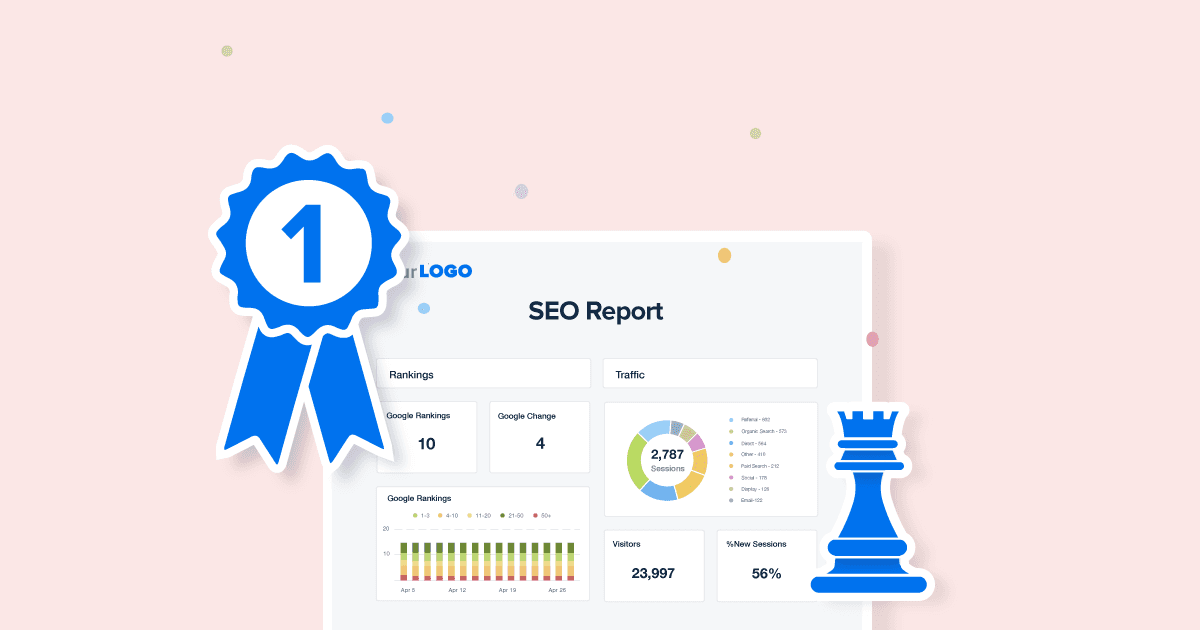Table of Contents
QUICK SUMMARY:
Setting realistic SEO expectations involves balancing client hopes with achievable results. This guide addresses the reality of SEO, offering seven strategies for setting realistic expectations for client results. It emphasizes transparency, practical insights, and effective communication to build trust and ensure successful, sustainable SEO campaigns. Learn how to navigate SEO complexities and maintain strong client relationships through clear, actionable frameworks.
Navigating SEO expectations vs. reality is a tightrope walk for even the most seasoned SEO managers. With so many variables influencing search engine results, setting realistic SEO expectations is essential to maintaining trust and client satisfaction.
Imagine having a clear, actionable framework that simplifies these complex conversations, making your SEO strategy more transparent and effective. This guide will help bridge the gap between what clients hope to achieve and what is realistically possible, creating a shared understanding that fosters long-term success.
SEO is an ever-evolving field; keeping clients informed and aligned on SEO goals can be challenging. This guide will equip you with practical insights and strategies to manage expectations vs. reality.
Whether dealing with clients who expect results to happen overnight or those who misunderstand the intricacies of search engine results pages, having a structured method to set and manage expectations will position your agency as a trusted advisor. This, in turn, builds stronger client relationships and leads to more successful and sustainable SEO campaigns.
Stay tuned as we explore nine strategies to set realistic SEO expectations with your clients, turning potential pitfalls into opportunities for clarity and collaboration.
Why Your Agency Needs To Set Realistic Expectations for Search Engine Optimization
Despite being an integral part of every successful website ranking for over a decade now, SEO has remained somewhat of a mystery to most, particularly to those with little or no knowledge of digital marketing.
One reason SEO has not gained that “I-am-curious-to-know-more-about-this” popularity outside of digital marketing is that it is not quite as measurable–in a traditional sense.
SEO has unique challenges and advantages, especially when dealing with competitive keywords, that can make it difficult for clients to understand its full potential. Unlike traditional marketing methods such as TV commercials or out-of-home advertising, SEO results are not immediately visible, making it a harder sell for some clients.
Additionally, search engines are constantly changing their algorithms, requiring ongoing adaptation of SEO strategies.
For example, SEO is also a much more long-term investment and may not be as viable in the short term as traditional marketing formats (PPC, Social Media, TVC, OOH, etc.). This often makes clients less inclined to invest time and money in something they can’t see the result from instantly.
Other Common Misconceptions About SEO
Understanding the common misconceptions about SEO is essential for setting realistic client expectations, especially when people think SEO is only about quick fixes. If not addressed upfront, these myths lead to misunderstandings and frustrations.
Achieving high rankings requires significant effort and time and cannot be obtained overnight.

Here, we’ll clarify some of the most prevalent myths and explain the realities of effective SEO practices.
Myth: SEO Delivers Immediate Results
One of the most widespread misconceptions is that SEO results happen overnight. Clients often expect to see immediate changes in their rankings and traffic. However, SEO is a long-term strategy that requires patience.
Timeframe for Results: Significant improvements usually take months, as search engines need time to recognize and index changes and new content to gain traction.
Building Authority: Establishing domain authority and trust with search engines is gradual. Regularly updating content, gaining high-quality backlinks, and maintaining technical health all contribute to this.
Myth: More Keywords Equal Better Rankings
Another common belief is that stuffing more keywords into content leads to better rankings.

This outdated practice, known as keyword stuffing, can be counterproductive.
Focus on Quality: Modern SEO prioritizes content quality and relevance. Search engines favor well-written, informative content that provides real value to users over content crammed with keywords.
Penalties for Overuse: Overuse of keywords can result in penalties from search engines, negatively impacting rankings. It’s crucial to use keywords naturally and strategically within the content.
Myth: SEO Is a One-Time Task
Many clients think SEO is a set-and-forget task, but this couldn’t be further from the truth. SEO requires ongoing effort to remain effective.
Continuous Updates: Regular updates to content, keyword strategies, and technical SEO practices are necessary to keep up with search engine algorithm changes and the competitive landscape.
Monitoring and Adaptation: SEO success involves continuous monitoring and adaptation. Regular audits, competitor analysis, and performance reviews help in staying ahead.
Myth: Higher Traffic Means Higher Revenue
Clients often assume that increased website traffic will automatically result in higher revenue. While traffic is important, it’s not the only factor.
Quality Over Quantity: The quality of traffic is critical, which is why understanding the types of keywords your agency targets is of the utmost importance. Targeted traffic from relevant keywords and sources is more likely to convert than high volumes of untargeted visitors.
User Experience and Conversion: A positive user experience and effective conversion optimization are vital to turning visitors into customers. Elements such as site design, usability, and clear calls-to-action play significant roles.
Myth: Link Quantity Over High-Quality Links
The belief that volume beats link quality and that having more backlinks will continually improve rankings is another misconception.
Importance of Quality Links: The quality and relevance of backlinks are far more critical than quantity. Links from reputable, authoritative sites carry more weight and positively impact rankings.
Avoiding Low-Quality Links: Numerous low-quality links will do very little (if anything) to support your agency’s SEO efforts. It’s better to focus on acquiring a few high-quality backlinks than many low-quality ones. Remember, the almighty Google values quality over quantity.

Addressing these common misconceptions will help clients understand the realities of SEO, setting the foundation for realistic expectations and a successful, long-term strategy.
9 Tips for Setting Realistic SEO Expectations
With little understanding of the skills involved comes many client-enforced, unrealistic expectations about the effect of SEO on their business. That’s why SEO agencies need to start thinking differently about how they pitch their work to others–especially facing the often-vertiginous changes in the SEO field.
If you aren’t upfront about these realities, the risk of creating bogus and misleading expectations is imminent, eventually leading to client disappointment and a bad reputation.
If you’re an SEO agency looking to build long-lasting, effective relationships with your clients, deliver results, and avoid disappointment, a comprehensive marketing strategy is vital to achieving SEO success. Here are a few tips on setting expectations that will lead to client excitement rather than a letdown.
1. Educate Clients About SEO Basics
Understanding the fundamentals of SEO is the first step in setting realistic expectations, often guided by an SEO specialist. Explain what SEO is, how search engines work, and the importance of organic traffic.
Address some of the common misconceptions noted above, such as SEO being a one-time task or delivering instant results. Providing a solid foundation helps clients appreciate SEO's complexity and long-term nature.
Help them understand the important SEO KPIs and the time and effort required to achieve them.
2. Clarify the SEO Timeline
SEO is a long-term strategy that requires patience for improving search results. Clearly communicate that significant results often take months to materialize.
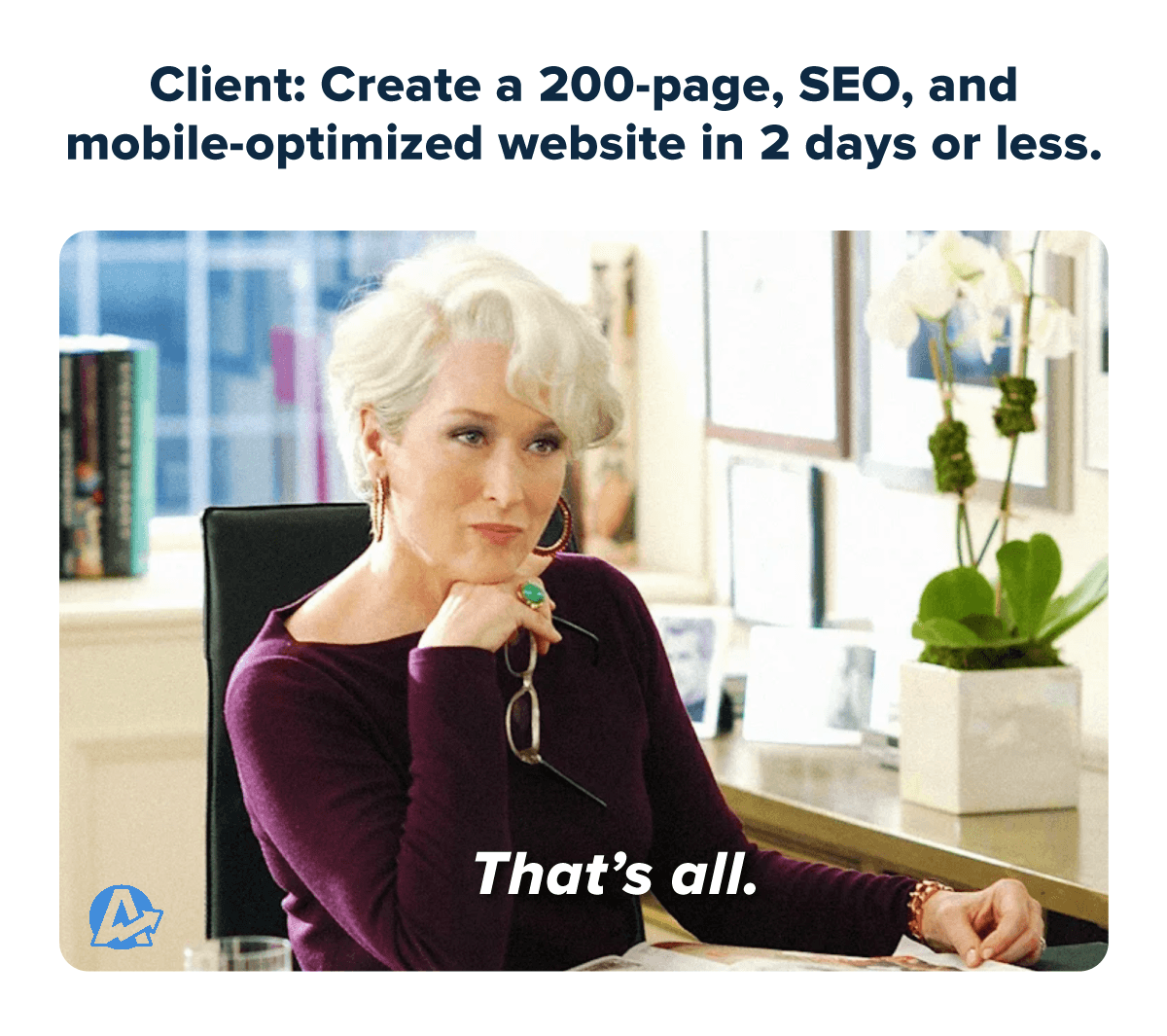
Explain the various factors that influence the timeline, such as competition, website age, and current SEO state. Setting realistic time frames helps manage client expectations and reduces frustration from perceived slow progress.
3. Talk About the Relevance of SEO
To get your client to understand the importance of SEO and why they should include it in their business strategy, they first need to understand what SEO will do for their business.
Start by reminding them that today, people go to Google to explore almost everything, from the nearest shops and new restaurants to medical symptoms. In that sense, if they want to be immediately accessible to their clients, they should have an online presence linked to the keywords their customers are searching for.
Let your clients know that organic search is often the primary source of website traffic and that their online visibility depends heavily on how high they rank on Google. Once you explain and demonstrate the value of your SEO craft to your clients and let them know how they can profit from it, you'll both have more clarification about what's expected in the long run.
However, it is essential to remember that–while you are the SEO expert–they are the expert on their business. Your client's input during regular collaborations is critical to their subsequent success in search engine marketing.
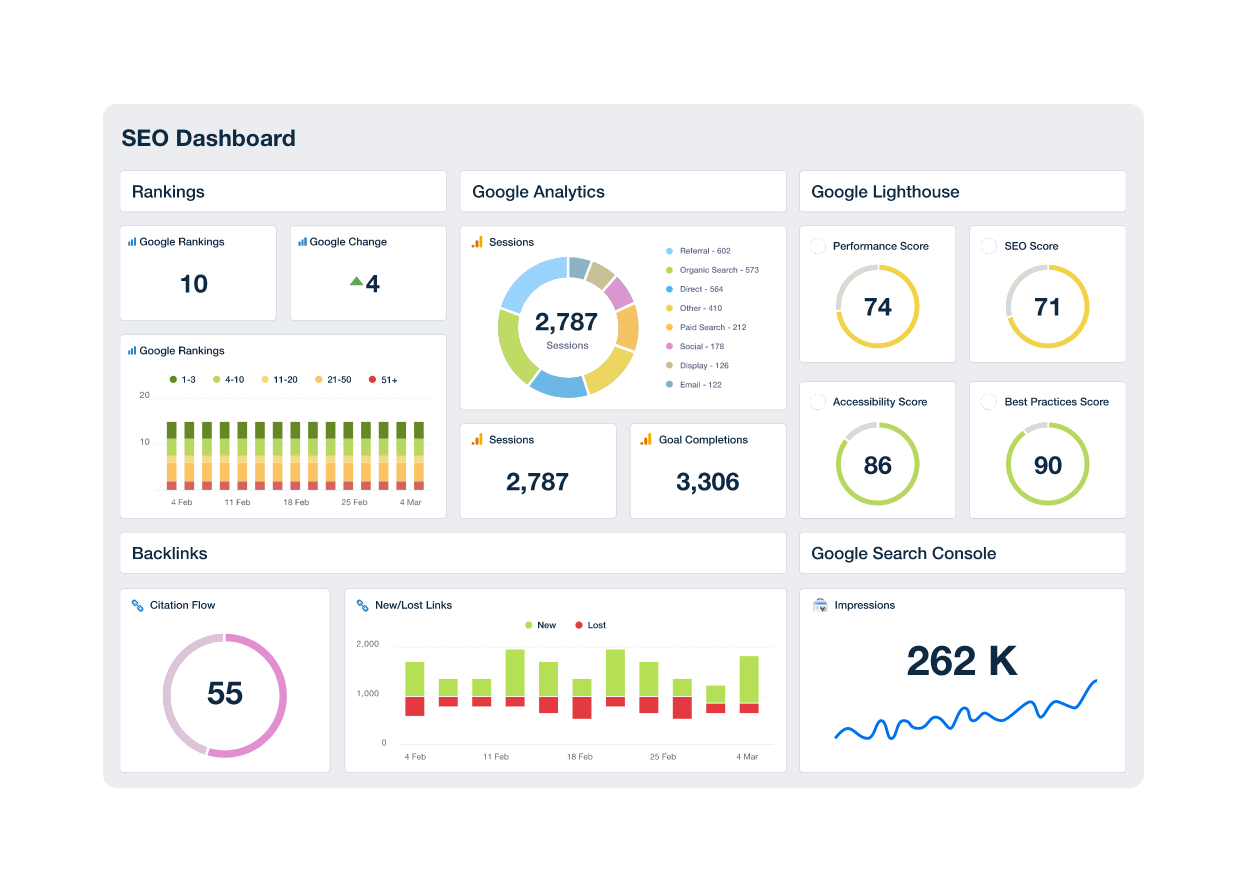
Highlight your agency’s successes with the customizable SEO Dashboard built for marketing agencies. Try AgencyAnalytics free for 14 days!
4. Don't Make SEO Too Abstract
Every client is different, as is their level of understanding and interest in digital marketing. When talking to them about SEO, try to cater to their level of understanding.
Consider taking some of the following steps:
Before going all Neil Patel on your client, learn how much they know about SEO and digital marketing.
Determine their learning style.
Ask them if they want to learn more about the process.
Break down the meaning of SEO, what it does, and why it’s relevant.
Help them understand the difference between on-page and off-page SEO.
Find an analogy that has meaning for them and link it to what you do.
Explain from the get-go what they can expect; include a weighted scoring decision matrix and a realistic timeframe.
Clarify that AI cannot solve all their SEO challenges with a single prompt; ongoing effort and strategy are essential for success.

Experts sometimes find it challenging to simplify complex and pertinent SEO terms to clients, but you don’t have to. While you may continuously get enthusiastic about everything Google Trends API-related, your client doesn’t need to share the same enthusiasm (or knowledge).
In fact, the extent of their SEO insight often doesn’t need to go any further than understanding how that same Google search data will bring them more business.
5. Communicate Possible Risks
Things go wrong in business all the time, and it's important to include risk factors and potential failures in your initial SEO discussion with the client.
To put all of the risks in one place and make it as straightforward as possible to the client, communicate the following:
Explain what out-of-plan factors may disrupt the initial plan and process.
Different risk levels, their power of influence, and how they may disturb the client's final results.
As an experienced SEO expert, you already know what usually happens on a project, so you know the best solutions. Let your clients know they are in safe hands by describing how you plan to approach the issues should they arise.
This way, you demonstrate your understanding of the process and industry peculiarities as well as your expertise and problem-solving abilities.
6. Be Open About Your Agency's Limitations
If there's something you can't provide, it is okay to disclose that initially. Being a jack-of-all-trades has rarely worked well for anyone, so rather than risk damaging the final quality of the product, make sure the client is aware of your limitations.
Pay attention to your client's vision of the final result and give your honest feedback on whether it's possible. The project's limitations should also be discussed at the very beginning and eventually appear on paper.
7. Talk About the Goals and Expectations of SEO
Your customer’s expectations in terms of SEO and understanding of ranking factors are an integral part of a successful collaboration.

Easily track Track SEO performance using custom goals. Try AgencyAnalytics today and get a 14-day free trial!
Creating an easy and transparent decision-making process with your client will provide a favorable climate of cooperation and take the pressure off both sides.
Both parties must be perfectly clear on the following:
Goals
Scope of work
Schedule
Workflow
Deliverables
When these are clearly communicated from the start, your client SEO report ties in with monthly deliverables, and you’ve got proof of how hard you are working for your clients behind the scenes.
8. Share Regular SEO Reports
Most clients don’t know that SEO requires more planning and strategizing than meets the eye. Share your SEO report template with them during the planning phase to keep them in the loop, show them how much work you do, and highlight the importance of driving more traffic.
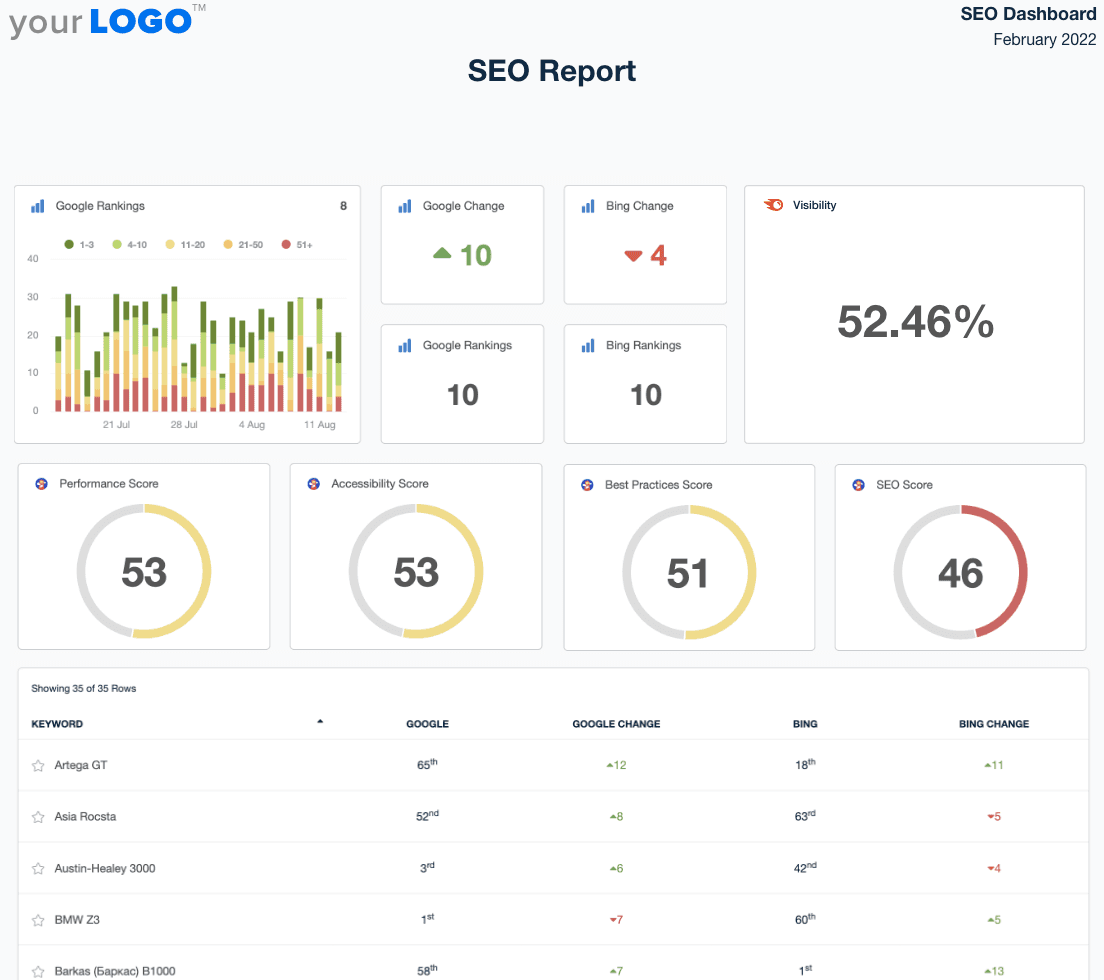
Don’t waste time manually pulling together SEO reports for clients. Use a client reporting platform that streamlines the reporting process to give you more time to focus on SEO strategies. Try AgencyAnalytics free for 14 days!
A great way to keep them conversant is by:
Reporting in calls.
Sending emails with stats.
Creating a video overview of your agency’s efforts and successes.
Delivering custom reports that highlight the most important SEO KPIs.
9. Let Your Clients Choose the Way They'll Learn
Everyone learns differently, and to achieve the best results with your client, determine (or ask) which of the four primary learning styles–visual, auditory, reading/writing, and kinaesthetic–they are most comfortable with, and go with that one.
While some clients will want to work with a diagram, chart, or simple drawing, others will want to discuss their ideas in person or over the phone.
Some will need you to demonstrate the concept (these are physical learners) on a computer or use an analogy. There will also be those who'll instead learn a thing or two by themselves and then come to you for additional explanations. Be prepared for any of these situations and, most importantly, be patient with your client—especially when their learning style differs from your own.
It never hurts to start your “tutoring sessions” by explaining some basics like:
Defining the SEO acronym.
How search engine optimization helps rank websites higher on a page.
How domain authority gives search engines a method to rank their importance.
Bonus Tip
After establishing a collaboration with your client, and once the results have started rolling in, introduce more SEO-beneficial aspects into the mix. Talk to your client about the benefits of blogging, omnichannel marketing, running regular SEO checkups, potentially creating another website, and so on.
Additionally, emphasize the role of email marketing in nurturing leads and building trust, which will further enhance your SEO strategy. Don’t mislead your client into thinking SEO is ever done–because you know it never is.
Over the long run, active SEO marketing will bring them more business and a successful client collaboration for you.
Final Thoughts on Setting SEO Expectations
Setting realistic SEO expectations is vital for maintaining strong client relationships and achieving long-term success in your SEO campaigns. This guide provided nine actionable strategies to help manage client expectations, from educating them on SEO basics to highlighting the importance of quality content, technical SEO, and high-quality backlinks.
We also debunked common misconceptions about SEO, clarified the importance of continuous effort, and emphasized the need for transparent communication.
Incorporating these strategies into your workflow not only helps manage client expectations vs. SEO reality but also strengthens your role as a trusted advisor. For seamless implementation, AgencyAnalytics SEO reporting tools are invaluable.
A professional client reporting platform offers comprehensive, easy-to-understand reports that keep clients informed and engaged, showcasing the real progress of your SEO efforts. With customizable dashboards, you present key metrics, track performance, and provide transparency, ensuring clients see the value in your agency’s work.
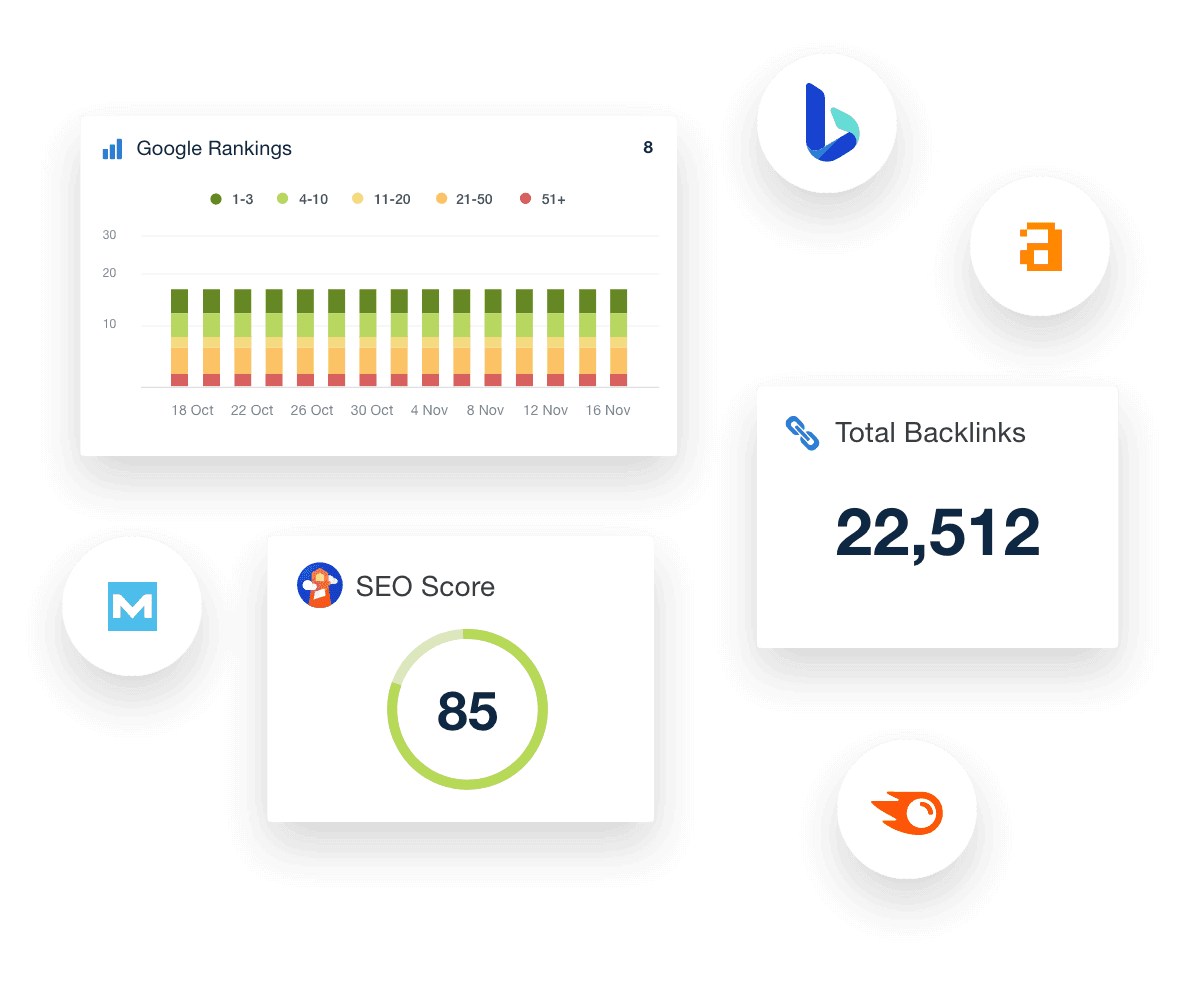
Equip your agency with the right tools to navigate the complexities of SEO and foster successful, long-term client partnerships. Explore how professional SEO reporting software will elevate your client communication today.

Written by
Nick Chernets is the Founder and CEO of DataForSEO, the leading provider of marketing data. Just as much as he is passionate about data analysis and SEO — Nick also enjoys sharing his experience from the business side of the industry.
See how 7,000+ marketing agencies help clients win
Free 14-day trial. No credit card required.






